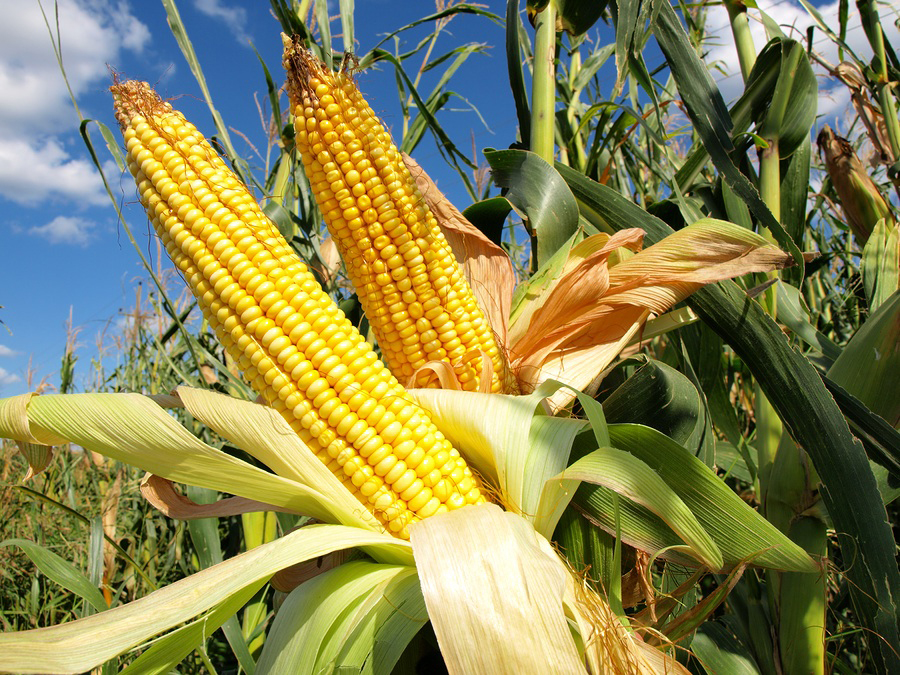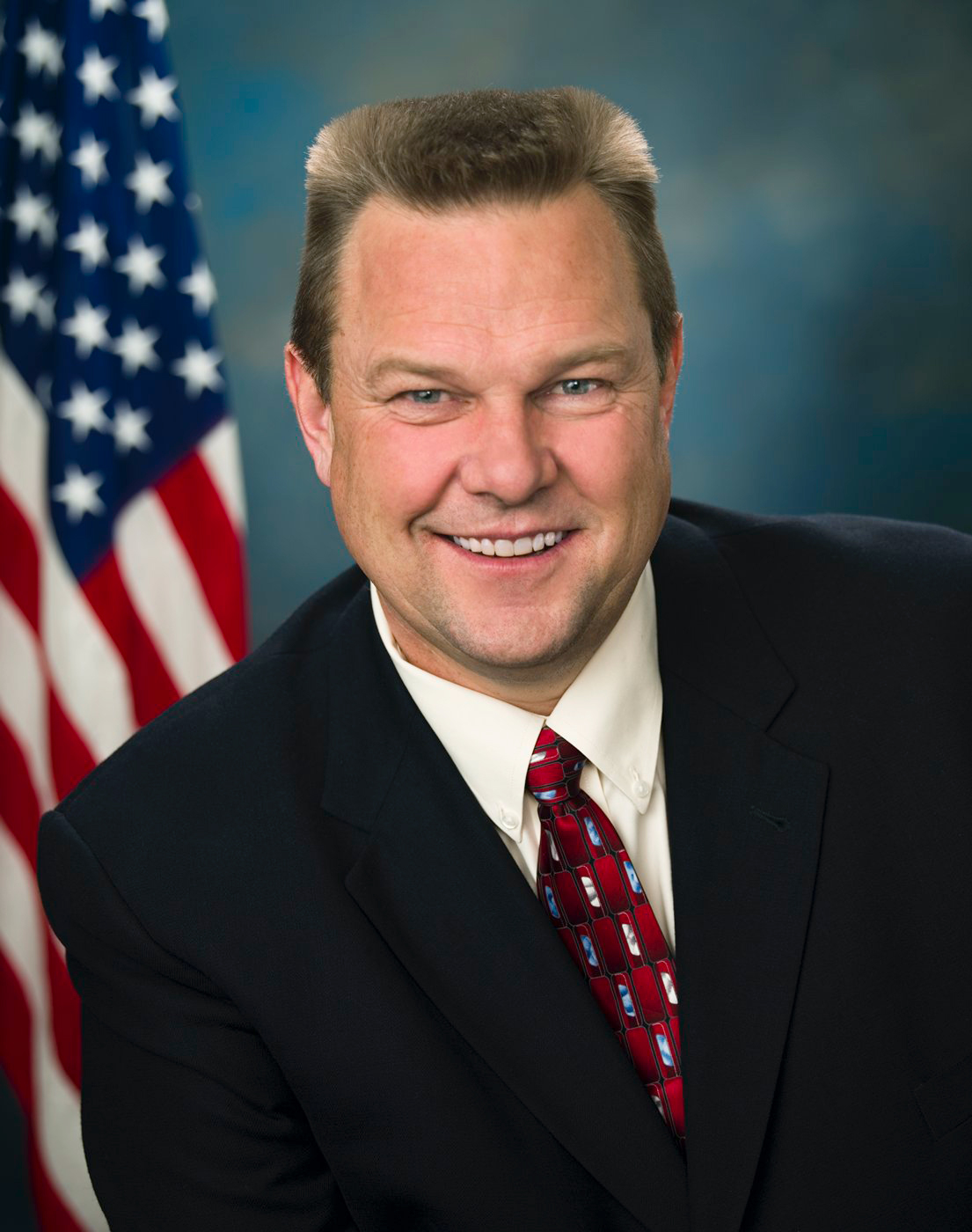A Victory for GMOs
Air Date: Week of March 29, 2013

Roughly 80 percent of the corn grown in the United States is genetically modified. (Bigstockphoto.com)
The bill Congress recently passed to avoid a government shutdown contained a rider that helps companies that make genetically modified crops. The rider takes away the authority of federal courts to order GMO crops removed from sale and production if they are found to be harmful. Montana Democratic senator Jon Tester tells host Steve Curwood that the rider is arguably unconstitutional.
Transcript
CURWOOD: The food and agricultural biotechnology companies that develop genetically modified crops recently won a victory in the US Congress. In a last minute crush to enact a stop-gap Continuing Resolution to avoid a US government shutdown, a little known amendment or rider was tucked into the measure that keeps federal courts regulating the planting of GMO crops. Jon Tester, a farmer and the junior Democratic senator from Montana, tried and failed to remove the rider, and he joins me now to explain.
TESTER: It's a rider that if the USDA makes a mistake when it issues a permit to plant a genetically modified crop, they can’t go back and pull that crop out of the ecosystem, out of our land. If a court finds that, in this case the USDA, a federal agency, finds this crop is bad, is harmful, the USDA, because of this rider, is required not to comply with that court ruling. So its constitutionality is questionable at best.

Jon Tester is a Democratic senator from Montana. (Jon Tester)
The other problem that I had with this amendment, with this rider, is it was air-dropped in. We had not voted on this previously. And as you know, the Continuing Resolution was pretty darn important. It kept the government running. I don’t think anyone wanted to see a government shutdown. So we were told if this provision was pulled out, the House would not pass it, that the government would shut down.
CURWOOD: Now as I understand it, Senator, there’s no member of the House that has taken responsibility for adding this rider, this provision. Why is the author so reluctant to step forward do you think?
TESTER: I don’t know. They ought to. But this is the kind of stuff in government...not only is it not good government, not only is it not what we’re supposed to be doing in Washington, DC, but it doesn’t give people the opportunity to have their voices heard and at least have a vote on issues. I mean, I would have loved to have had a vote on my amendment to pull this stuff out.
Look, I voted against cloture, I voted against the bill, and it wasn’t because I didn’t think there were good things in the bill...there were some really good things in the Continuing Resolution. But this was such a poison pill for me, being somebody that’s in production and agriculture, somebody that’s been connected with the land.
My grandfather homesteaded the land that I farm so we’ve been connected for a long time. And plus it just went against our branches of government where we have checks and balances that we were told specifically because of this rider to ignore those checks and balances that are in our governmental system, in our democracy.
CURWOOD: Tell me, how long does this rider live as law? Does it go away when the Continuing Resolution expires in six months? Or does America live with this legislation from now on?
TESTER: There’s some debate on that. But I believe it goes away in September. There’s a lot of things that can be done between now and September, this being our growing season here in North America.
CURWOOD: Now as I understand it, the food and agriculture biotech companies have spent more than half a billion dollars lobbying with campaign contributions over this past decade or so. Do you think that kind of money, campaign contributions to members of Congress and that kind of lobbying, do you think that’s a factor here?
TESTER: Well, it could be. I’m sure...you know, I just came through one of the toughest Senate races in the country here in Montana. And I’m sure they probably spent a lot of money on me. We don’t know because that money is secret.
CURWOOD: They spent it on you...or against you?
TESTER: Oh, I’m sure they spent it against me. But I don’t know that. So that’s probably an unfair claim because all that money is secret. But my guess is that they understand where I stand on these issues. And quite frankly, from a farmer, I don’t want to see our seed controlled by some huge multinational company.
Farmers have control over the land. Their markets are consolidated. Their input costs go through the roof because there’s a few that offer that up and now we’re going to give our seed supply to a multinational company? That doesn’t make any sense to me, and I think this is the direction that things are headed. And that’s why I’m very concerned about it also.
CURWOOD: So, you run an organic farm there in Montana on the land that your grandparents homesteaded originally. Tell me, how does your experience as a farmer inform your opinion of the use of genetically modified organisms for crops?
TESTER: I would just say this; Mother Nature is a great thing. She’s given us so many things to feed people with. And when man steps in and thinks we’re smarter than Mother Nature, I have never found that to be the truth.
CURWOOD: You’re saying Mother Nature bats last.
TESTER: Absolutely, though my experience. And we’ve only been on the farm about 35 years. But through my experience, Mother Nature always wins, and if you can work with her, you’re much better off. In this particular case, I think man is introducing crops into the ecosystem that they have no idea what the long term impacts are going to be.
You combine that with the fact that now we have no review because of this rider, and we can’t pull back if we know there’s a mistake, you combine that with the fact I think there’s a concerted effort to get the seed in the control of the hands of few, and that’s a big deal if you’re in agriculture. I just think we need to walk slowly on this issue and make sure we know what we’re doing before we enter into it. This rider really goes against all of that.
CURWOOD: Jon Tester is the junior Democratic senator from Montana. Thank you so much, Senator.
TESTER: Thank you very much. It's a pleasure.
CURWOOD: There is more about GMOs, neonicotinoids, birds and bees on our website, LOE.org.
Links
Living on Earth wants to hear from you!
Living on Earth
62 Calef Highway, Suite 212
Lee, NH 03861
Telephone: 617-287-4121
E-mail: comments@loe.org
Newsletter [Click here]
Donate to Living on Earth!
Living on Earth is an independent media program and relies entirely on contributions from listeners and institutions supporting public service. Please donate now to preserve an independent environmental voice.
NewsletterLiving on Earth offers a weekly delivery of the show's rundown to your mailbox. Sign up for our newsletter today!
 Sailors For The Sea: Be the change you want to sea.
Sailors For The Sea: Be the change you want to sea.
 The Grantham Foundation for the Protection of the Environment: Committed to protecting and improving the health of the global environment.
The Grantham Foundation for the Protection of the Environment: Committed to protecting and improving the health of the global environment.
 Contribute to Living on Earth and receive, as our gift to you, an archival print of one of Mark Seth Lender's extraordinary wildlife photographs. Follow the link to see Mark's current collection of photographs.
Contribute to Living on Earth and receive, as our gift to you, an archival print of one of Mark Seth Lender's extraordinary wildlife photographs. Follow the link to see Mark's current collection of photographs.
 Buy a signed copy of Mark Seth Lender's book Smeagull the Seagull & support Living on Earth
Buy a signed copy of Mark Seth Lender's book Smeagull the Seagull & support Living on Earth

